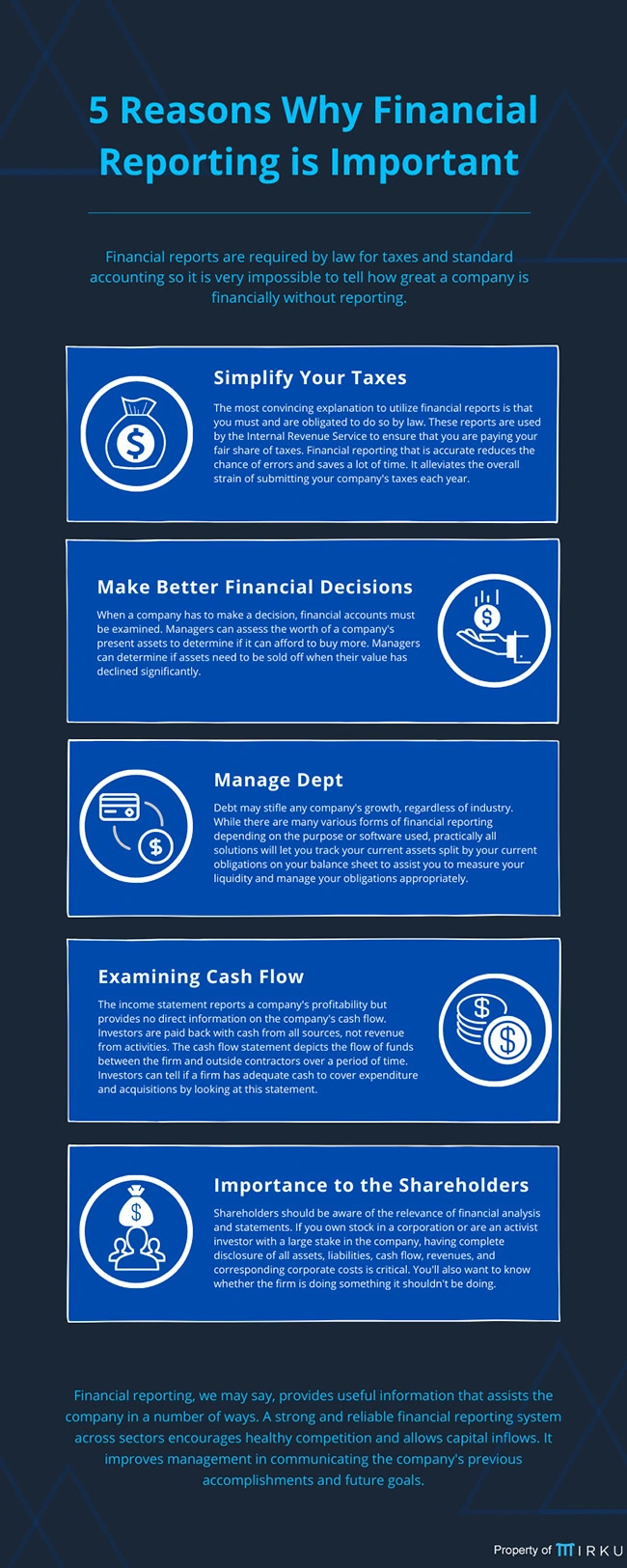The importance of filing financial reports when running a business.
Here’s a piece of useful trivia. The abacus, called Suan-Pan in Chinese, as it appears today, was first chronicled circa 1200 C.E. in China. The device was made of wood with metal reinforcements. On each rod, the classic Chinese abacus has 2 beads on the upper deck and 5 on the lower deck. For those who don’t know yet, the word ABACUS is the short form for Abundant Beads, Addition and Calculation Utility System.
While the abacus is an ancient calculation tool used by many traders in their time, there is nothing ancient in the method of gathering data for financial reporting. It’s relevance to modern accounting and running businesses to this day and age is proof of the untapped power and potential of financial analysis.
In fact, financial analysis and reporting are one of the bedrocks of modern business. Financial analysis and reporting offer a level of insight that helps businesses remain compliant while streamlining their income or expenditure-centric initiatives across the board.
Financial reporting refers to standard practices to give stakeholders an accurate depiction of a company’s finances, including their revenues, expenses, profits, capital, and cash flow, as formal records that provide in-depth insights into financial information.
Each of these financial KPIs is incredibly important because they demonstrate the overall ‘health’ of a company – at least when it comes to the small matter of money. These types of KPI reports don’t offer much insight into a company’s culture or management structure, but they are vital to success, nonetheless.
The Benefits Of Financial Reporting
Financial reporting provides useful information that assists the company in a number of ways. A strong and reliable financial reporting system across sectors encourages healthy competition and allows capital inflows. It improves management in communicating the company’s previous accomplishments and future goals.
Here’s an in-depth look at real-world use cases that we at Tize want to share. The following points are what we consider to be the essence of financial reporting. Consider these as the key benefits of financially-based reporting and analytics.
Improved debt management
Debt can cripple the progress of any company, regardless of sector. While there may be many different types of financial reporting concerning purpose or software, almost all solutions will help you track your current assets divided by the current liabilities on your balance sheet to help gauge your liquidity and manage your debts accordingly.
Debt may stifle any company’s growth, regardless of industry. While there are many various forms of financial reporting depending on the purpose or software used, practically all solutions will let you track your current assets split by your current obligations on your balance sheet to assist you to measure your liquidity and manage your obligations appropriately.
Trend identification
Regardless of what area of financial activity you’re looking to track, this kind of reporting will help you identify trends, both past and present, which will empower you to tackle any potential weaknesses while helping you make improvements that will benefit the overall health of your business.
Real-time tracking
By gaining access to centralized, real-time insights, you will be able to make accurate, informed decisions swiftly, thereby avoiding any potential roadblocks while maintaining your financial fluidity at all times.
Liabilities
Managing your liabilities is a critical part of your company’s ongoing financial health. Business loans, credit lines, credit cards, and credit extended from vendors are all integral liabilities to manage. By using a financial report template, if you’re planning to apply for a business expansion loan, you can explore financial statement data and determine if you need to reduce existing liabilities before making an official application.
Progress and compliance
As the information served up by financial reporting software is both accurate and robust, not only does access to this level of analytical reporting offer an opportunity to improve your financial efficiency over time, but it will also ensure you remain 100% compliant – which is essential if you want your business to remain active.
Cash flow
Big or small, an organization’s cash flow is essential to its ongoing financial health. Working with a mix of detailed metrics and KPIs, it’s possible to drill down into cash flow in relation to anticipated profit and liabilities, keeping your monetary movements secure and fluent in the process.
The income statement reports a company’s profitability but provides no direct information on the company’s cash flow. Investors are paid back with cash from all sources, not revenue from activities. The cash flow statement depicts the flow of funds between the firm and outside contractors over a period of time. Investors can tell if a firm has adequate cash to cover expenditure and acquisitions by looking at this statement.
Communication & data access
Any modern financial analysis report worth its salt is accessible to and optimized for a multitude of devices. By gaining unlimited access to essential financial insights and data, you can respond to challenges swiftly while improving internal communication across the board. If everyone understands emerging trends and can share vital financial data, your organization will become more efficient, more innovative, and safeguarded against potential compliance issues or errors.
Simplify Your Taxes
The most convincing explanation to utilize financial reports is that you must and are obligated to do so by law. These reports are used by the Internal Revenue Service to ensure that you are paying your fair share of taxes. Financial reporting that is accurate reduces the chance of errors and saves a lot of time. It alleviates the overall strain of submitting your company’s taxes each year.
Make Better Financial Decisions
When a company has to make a decision, financial accounts must be examined. Managers can assess the worth of a company’s present assets to determine if it can afford to buy more. Managers can determine if assets need to be sold off when their value has declined significantly.
Importance to the Shareholders
Shareholders should be aware of the relevance of financial analysis and statements. If you own stock in a corporation or are an activist investor with a large stake in the company, having complete disclosure of all assets, liabilities, cash flow, revenues, and corresponding corporate costs is critical. You’ll also want to know whether the firm is doing something it shouldn’t be doing.
Crunching Figures, Hidden Numbers.
More than just a typical accounting procedure, financial reporting reveals a company’s financial information and performance over a specific time period. A financial report, in basic terms, is essential for understanding how much money you have, where it comes from, and where it needs to go.
Here at Tize, we get you past the goal of financial reporting.
We help you keep track of, analyze, and report your company’s earnings through cutting edge CRM that harnesses the power of financial information and data available. No hidden numbers to worry about, just crunching figures that matter for every single report.
Only Kung-Fu could do better in breaking the bank. Hi-yaah!







